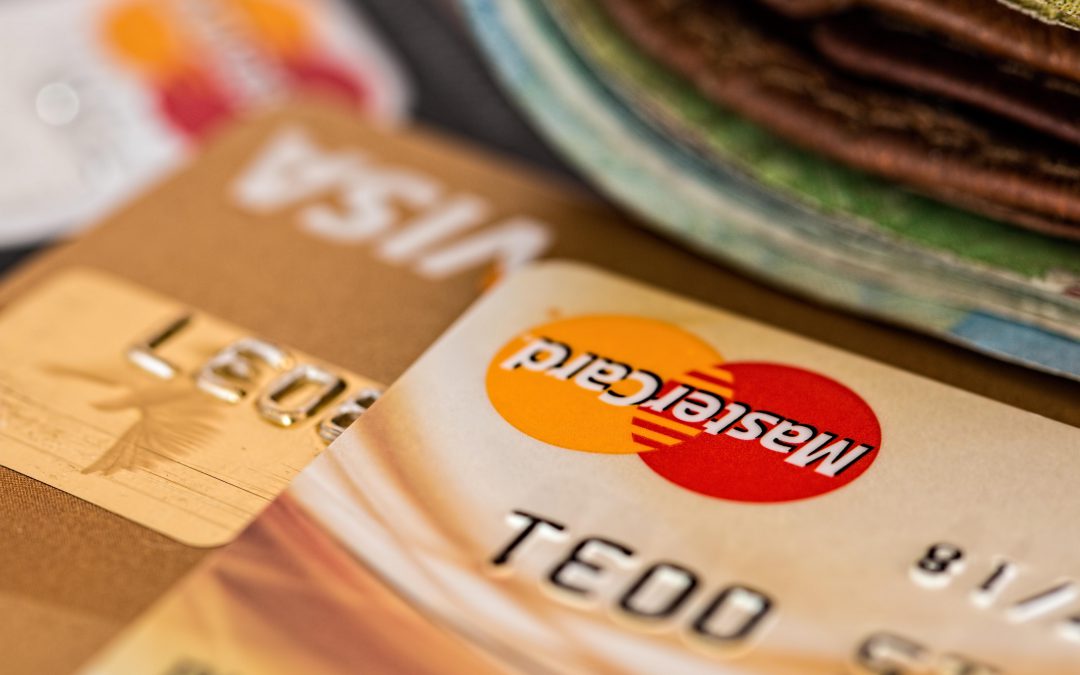Credit card debt is a big problem for many people. At the interest rates credit card companies charge, it doesn’t take long to fall behind on payments. When that occurs compounding works against you, putting you in a downward spiral financially.
Here are some options to consider to get out of credit card debt and get back to a better financial position.
- Call your credit card company immediately (number is right on the back of your card) and politely let them know that you are looking to lower your interest rate on your credit card balance. Tell them you are investigating balance transfer offers to other cards to lower your interest rate on your credit card balance, but would consider staying with them if they could lower their rate. All they can say is no, but if you don’t ask you don’t get! They want to keep your business so many will likely reduce your rate to keep you happy. This could help you immediately in your goal to pay the card off by just making a phone call!
- Consider Peer to Peer lending options such as Lending Club or Prosper as another way of lowering the interest rate on your debt. Often you can borrow money at almost half of what credit cards charge (10% interest instead of 18% interest for example). These are sites where you are borrowing from individuals indirectly via the web rather than from a bank. The technique is to borrow the money from these sites and then use the money to pay off your credit cards, thereby lowering your rate.
- You can also consider getting a better card offer (such as a 0% APR for a number of months) and transferring the balance. This will lower your rate to zero for a while and allow you to make more headway on the debt. Be careful to read the fine print with the balance transfer offer, however. Make sure you know if they charge a fee or not and if so, how much the fee is to transfer. It there is a fee you’ll have to evaluate the transfer fee vs the rate savings to see if it is worth it. One source to consider for transfer offers would be www.comparecards.com
- Sell some stuff! We all have things lying around that we don’t use. Stop hanging on to those items and convert it to cash so you can pay off debt. Whether it is a rummage sale or using online tools such as Decluttr, Letgo, 5Miles, Cash4books or others, you should consider this as an option to get some quick cash to throw at your debt.
- Stop the bleeding. Start transitioning to using a debit card (from your bank or credit union) or cash for your future purchases if possible, to shift from using credit (buying items now and paying for them later) to paying for them at the time of purchases (debit card or cash). This will prevent you from adding more to your credit cards, at least until you pay off the balances. This transition will take some time, as you probably can’t just switch overnight as you might drain your current cash balance. You can start with 90% credit and 10% debit card or cash for the first month, and then slowly over time keep adjusting the percentage spent (say 10% per month) until you are using the debit card or cash almost exclusively. It may take months (10 months in this example) to get there but it is worth it. It is important to note that a credit card is superior to a debit card or cash when it comes to product disputes and fraud protection. With a credit card you can decline to pay for a product or service you are not happy with by notifying your credit card company. With a debit card or cash you are out the money, and will have to battle with the vendor to get your money back if you are unhappy. Also if there is fraud and someone gets your credit card number, you won’t be out the money if you report it to the credit card company. With a debit card your bank account tied to your card, so you bank account balance is at risk. If you use a debit card keep the balance in your account low (keep excess funds in a separate savings account) to minimize the risk in case your debit card number is compromised.
- If you don’t have an emergency fund of at least $500 to $1,000 in a savings account, you should consider saving to fund that first before paying down extra on your credit card. It is important to have a financial cushion to fund emergencies to avoid putting more on a credit card. Financial emergencies are going to happen to everyone (unexpected car repair, broken appliances or a medical bill, for example). Decide to make an emergency fund part of your permanent financial future! This fund will give you cushion to handle unexpected expenses with less stress and without falling behind financially. You’ll sleep much better at night too.
- Make the decision right now that your credit card balance is the enemy out to destroy your financial future. Decide that you are going to throw any extra money at the debt. Even $20 extra or more per month can make a big difference! Here are some online calculators to review your payoff timeline options https://www.creditcards.com/calculators/payoff/ or https://www.credit.com/tools/credit-card-payoff-calculator/
- Consider getting a part time job or take on a side hustle to get some extra money. Take whatever you earn and put it against the debt. Keep at it! Some side hustles would include things such as dog walking, house sitting, driving for Uber or Lyft, etc. Here is a link to a site with lots of ideas https://hacktheentrepreneur.com/side-hustle-ideas/. If you do start a side hustle realize that you are running a business and with that you will want to keep business transactions separate from personal transactions. Often a separate bank account can help simplify your life by keeping the business transactions separate. Bankrate.com has a guide for things to consider regarding side hustle bank accounts.
- There are a few techniques that others have followed successfully in paying down cards. One involves getting momentum going by making additional payments toward the smallest balance card first, and then the next smallest, etc. to get some quick wins to keep you engaged in the process. Having successes early is one of the best ways to stay motivated so you’ll stick with your plan and not give up. The other common technique is to pay off the credit cards starting with the highest interest rate card and then next highest rate card, and so on. From a pure financial standpoint, paying off the highest rate cards first makes the most sense. Neither of these methods is right or wrong because if you pay off the debt, you win!
- If you don’t feel you can make progress on your credit card debt based on your financial situation, consider visiting NFCC.ORG at https://www.nfcc.org/our-services/credit-debt-counseling/ which is the National Foundation for Credit Counseling. Their mission is to help you review your specific individual situation and help guide you financially to the best possible outcome.
Go after it – you got this!




